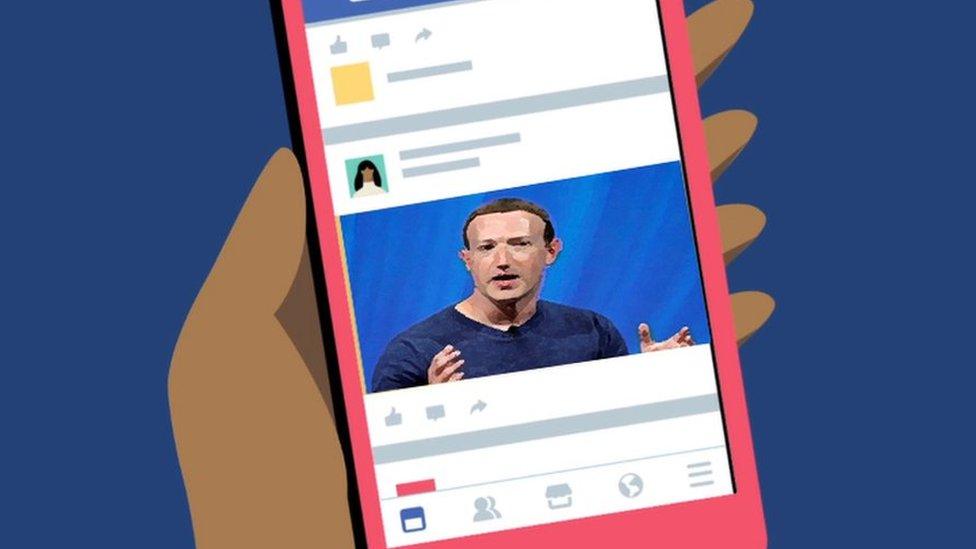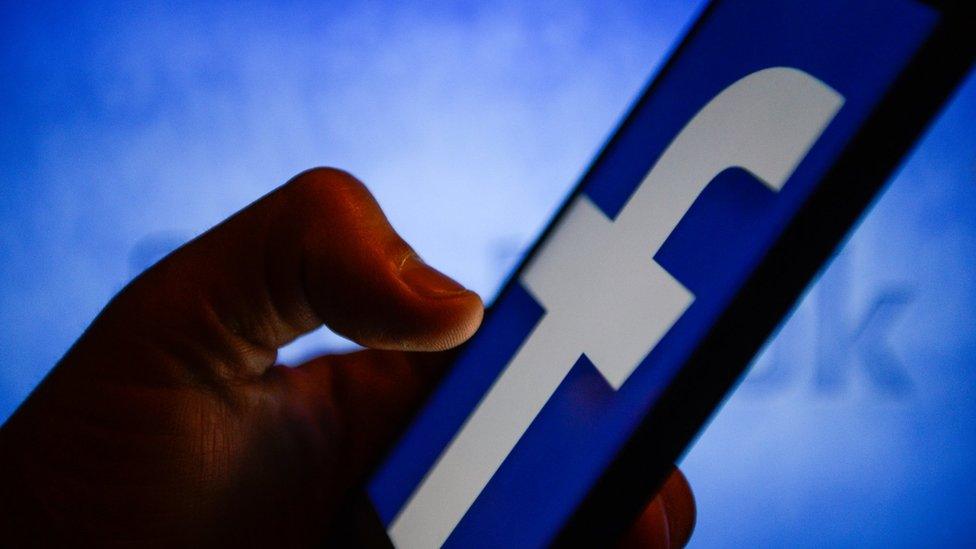Is Facebook's News Feed fading?
- Published

When anything changes in the way the world's most powerful social media firm works, that can have huge consequences for its users and the businesses that feed off them.
And now Mark Zuckerberg has signalled a major shift in how Facebook's huge global audience uses the service.
To most users, the News Feed - the stream of posts shared by your friends, groups and the businesses you follow - is Facebook.
But speaking on a conference call after the company's pretty solid - if unspectacular - third-quarter results, Zuckerberg said: "We're seeing the way people connect, shifting to private messaging and Stories.
"Public sharing will always be very important, but people increasingly want to share privately, too."
That needs a bit of translation.
What he means is that instead of posting those new baby photos or that article about the three-headed dog onto the public News Feed, they are sending them to individuals or groups via Messenger or WhatsApp or they are using the new Stories features.
Transient move
Stories, basically a copy of Snapchat, allows you to post videos and photos which only last on the service for 24 hours.
Apparently, it's the privacy built into these services - especially WhatsApp - which is making them attractive to users, and with Stories they also appreciate its transient nature.
"People want to share in ways that don't stick around permanently, and I want to make sure that we fully embrace this," the chief executive explained.
The other growth area is video, with the separate Watch tab taking users away from the Newsfeed to a menu of things to watch.
Zuckerberg says video in the main feed "displaces some social interactions and people tell us it makes the experience less valuable", but putting it in a separate place somehow makes for a higher-quality experience.
However, this move to dilute what was the key Facebook product presents some big challenges.
First, neither Stories nor Watch has taken off quite as quickly as had been expected.
Then there is the question of how to make them pay.
Introducing adverts into a format like Stories is going to be a challenge, even if Facebook is making that work for its Instagram product.
Far trickier will be turning Messenger and WhatsApp into money-spinners.
Users see these as really private spaces and if an advert for baby clothes suddenly intrudes into a conversation about an impending birth that will further damage trust in Facebook. Tensions about how to monetise WhatsApp are thought to have been behind the departure of its founders.
Mark Zuckerberg admits there could be bumps in the road while the transition is under way but seems confident about the longer term.
"Our revenue growth may be slower during that period, like it was while transitioning our products to mobile," he said.
That move to mobile was supposed to be a huge threat to the company's revenues but ended up supercharging them.
But there is another constituency which will be watching the changes to Facebook - and in particular the way it handles video - with furrowed brows.
A few years back, media organisations rushed to build major video presence on the platform, diverting staff and resources, on the back of figures showing vast audiences clicking to view.
But this "pivot to video" now looks to have been built on an illusion. Facebook is fighting a court battle with advertisers who accuse it of knowingly inflating video viewing figures, and media firms have laid off staff after audiences failed to show up.
Facebook warned earlier this year that media content would be less visible on News Feed, with posts from friends prioritised.
Now all sorts of businesses will be wondering whether the social media giant really does provide the best platform to target their messages to millions of consumers.
- Published31 October 2018
